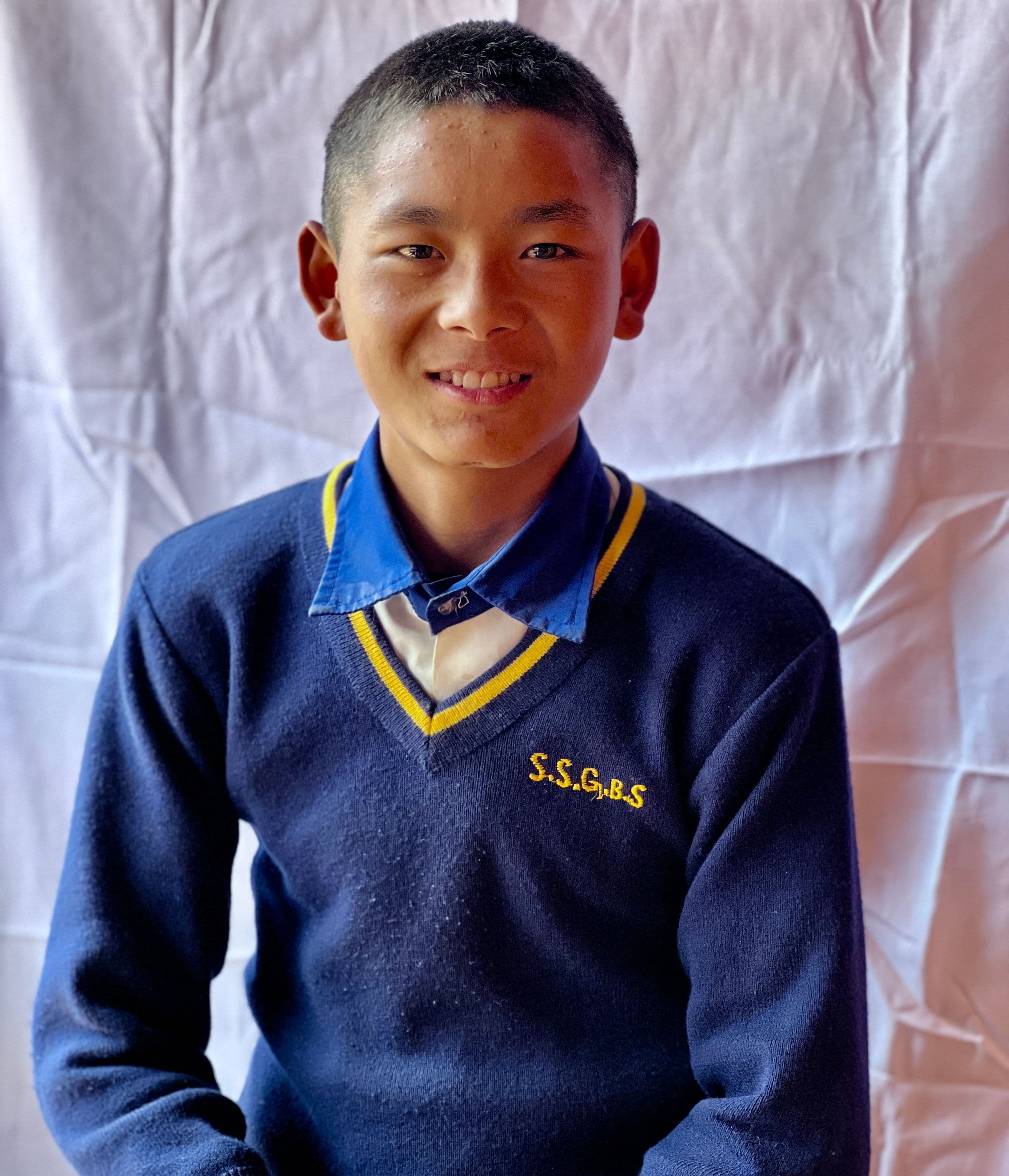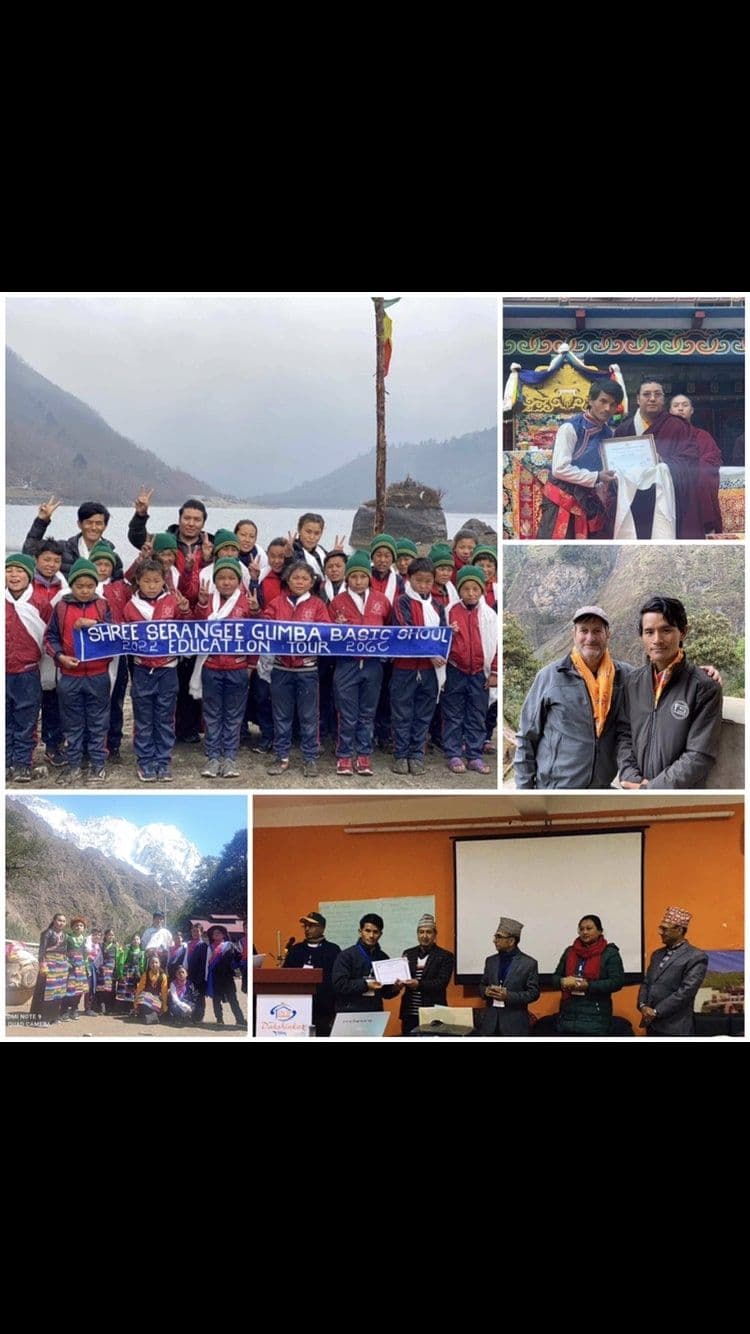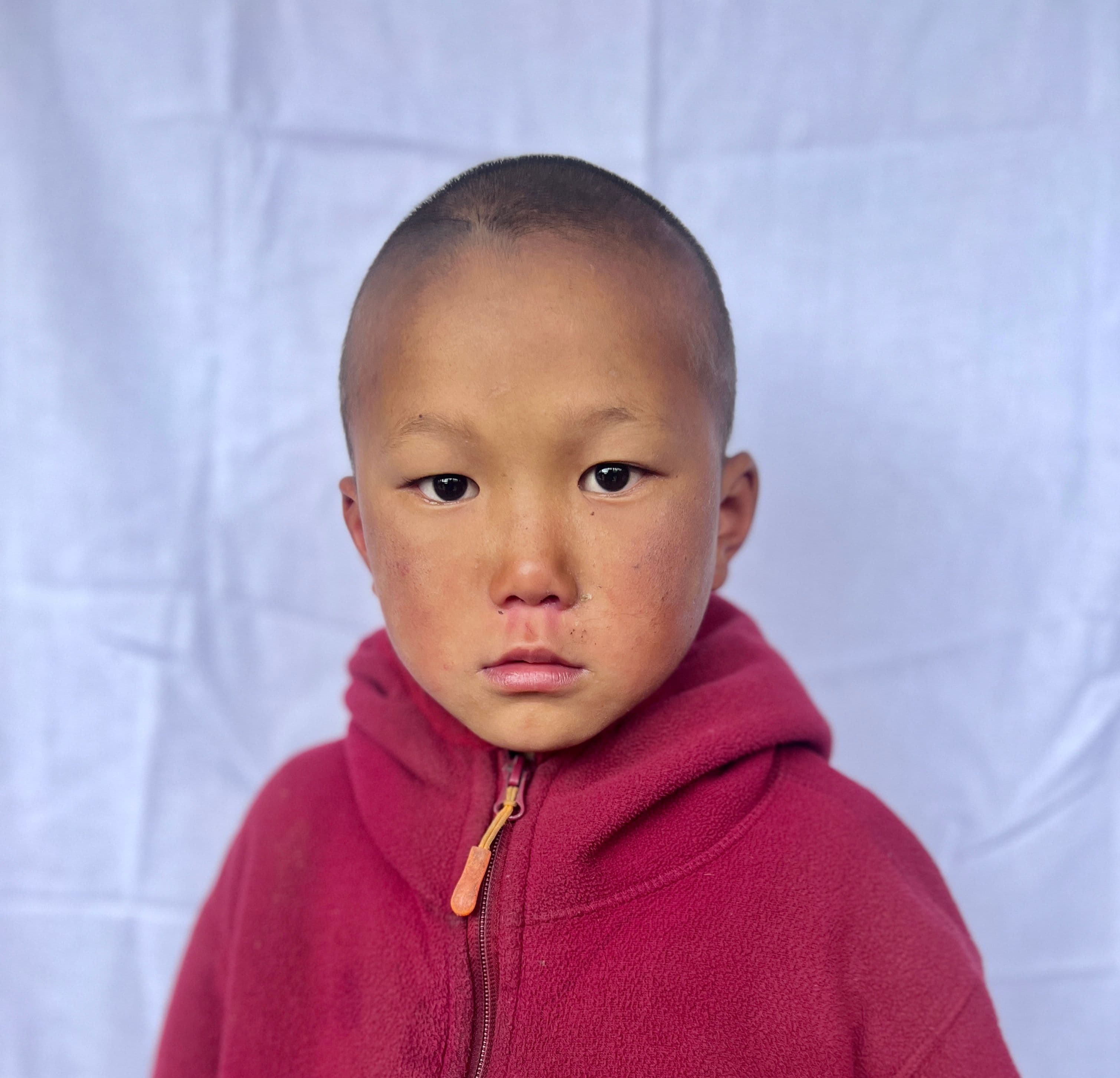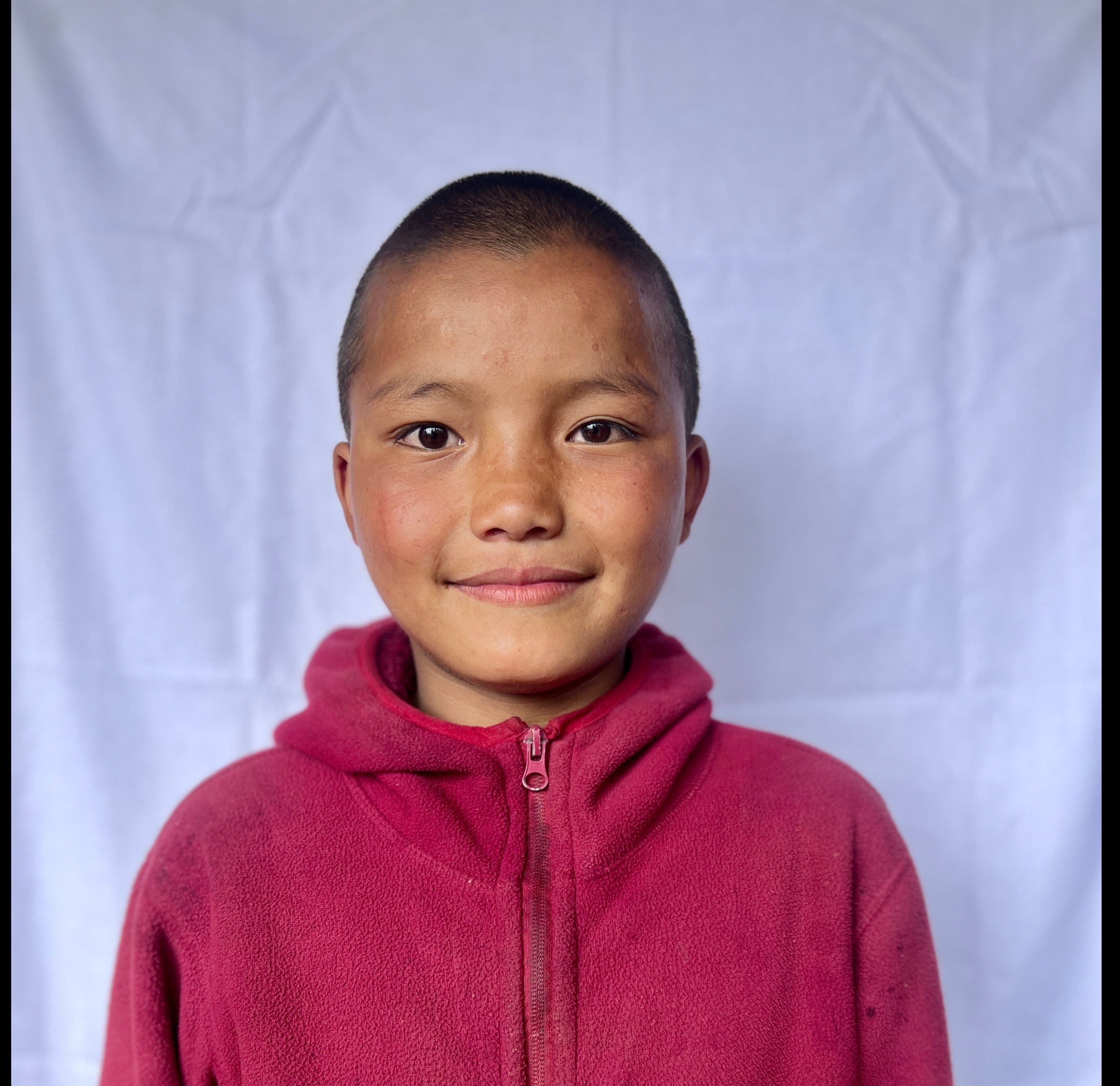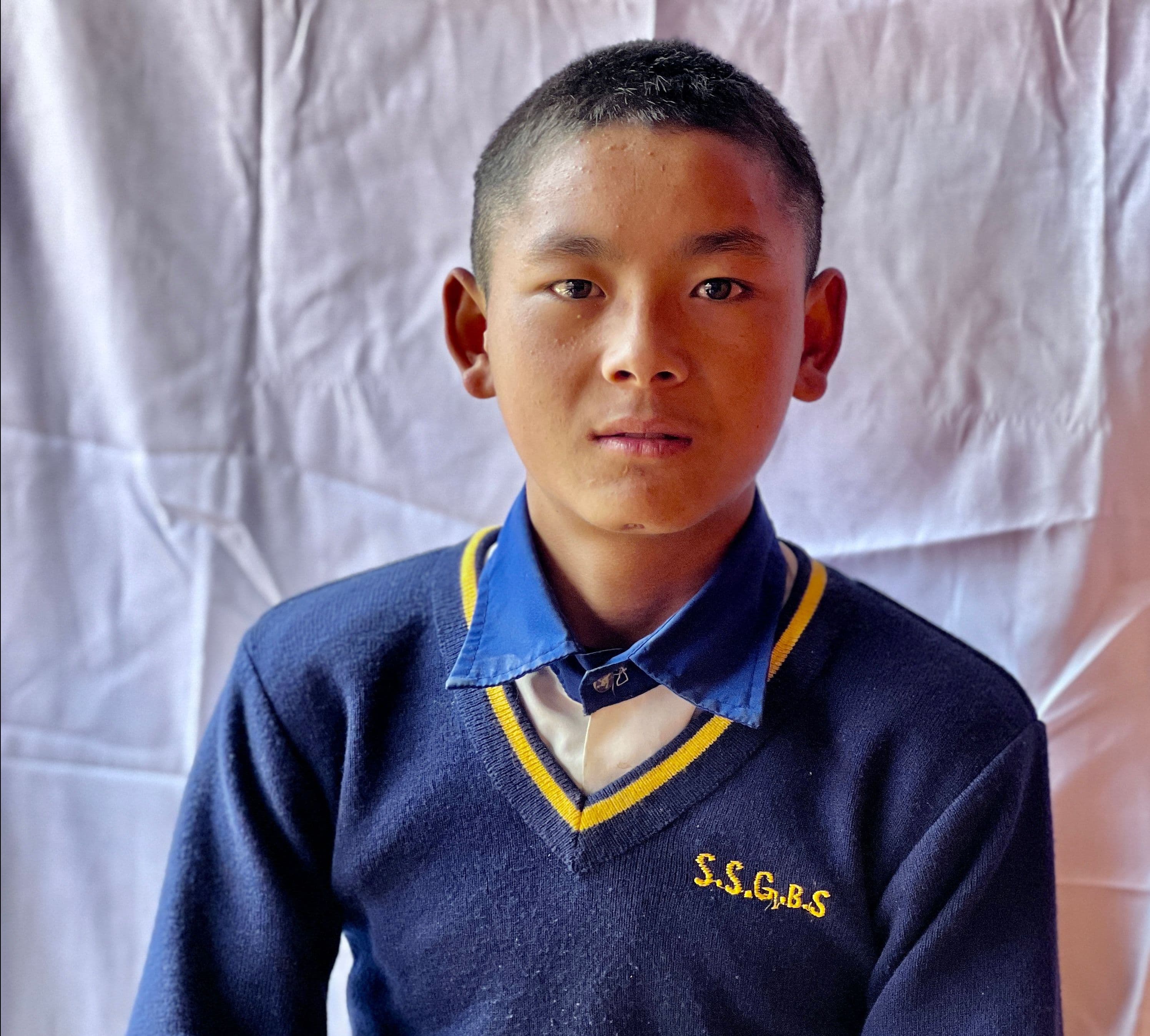
Like many Himalayans, it also lies in the ‘goiter belt’, where people die simply because their diets do not contain iodine. And there is not enough food on the table. In fact, 62% of Himalayan kids are stunted.
Tsering Wangdak is from the Bihi Manaslu region, the most remote and underprivileged region of Nepal. It lies in northwest Nepal, high on the Nepal side of the Tibetan border, in the hidden valley of the Himalayas. This hidden valley is well known as Nubri-Kyimolung, which is known for its extraordinary landscape and breathtaking natural beauty. It is not only bestowed with stunning natural scenery, but it is also blessed with a long-standing connection to Buddhism. The holy place of Guru Padmasambhava was more than a millennium ago. This particular region is high and inaccessible – all the local settlements completely depend on seasonal subsistence farming. Traditionally, the people of Nubri have only been able to raise enough for three months out of the year. Due to high altitude and cold weather. This region is completely underdeveloped and has a food deficit every year for almost six months. The districts in the northwest of Nepal that lie in the Himalayas mostly suffer from seasonal famine. Like all the other Himalayan districts in the north of Nepal, the people of the Manaslu region are Tibetan. They speak Tibetan dialects of Tibetan, dress and eat like Tibetans, and most live the traditional nomadic lifestyles, herding animals. And like the Tibetans, Nubri people are devout Buddhists. So, Locals tend to keep the language, culture and Buddhist way of life of the Himalayan people alive.
This region lacks services the rest of the world takes for granted: education, transportation, health care, communication and safe drinking water. Like many Himalayans, it also lies in the ‘goiter belt’, where people die simply because their diets do not contain iodine. And there is not enough food on the table. In fact, 62% of the Himalayan kids are stunted.
Tsering Wangdak’s family are subsistence farmers in Bihi village in the lower region of the Manaslu. Their farming lands are rented from the valley's main Buddhist monastery. The production of the crops will be divided into 50%. They have four other children; all daughters, but with Tsering Wangdak in care at school, the family will find it easier to survive. Happily, he has adjusted well to this new home – where he has enough to eat and a cozy bed to sleep. Every kid from this region starves for services such as Tsering Wangdak.
Like most of the villagers his dad is also alcoholic and most of his elder sisters are out of the village in search of good fortune to have a better lifestyle. With the poor family background, they weren’t able to save their mother’s life from the dreadful disease known as Tuberculosis in 2018. This sort of incidence often strikes in the underprivileged villages like Bihi. Infants are often left out without mothers. Often kids are compelled to grow up without the parents’ love and affection. On the other hand, kids often lose their lives from malnutrition and very mild sickness such as diarrhea and flu. The painful truth of the local residents which every local hopes to escape.
So, we came up with a productive and sustainable project plan with a specific vision to educate the kids who are desperately in need of help. We have remained committed to helping local residents’ kids to build their lives. Our school has been started to provide the best education services to the needy kids from far and near, especially kids in the lower Manaslu valley like Tsering Wangdak. Bringing a change in the Nubri communities by providing the crucial needs of the kids. Hoping to bring a positive light in kids’ lives.
Share it on:

